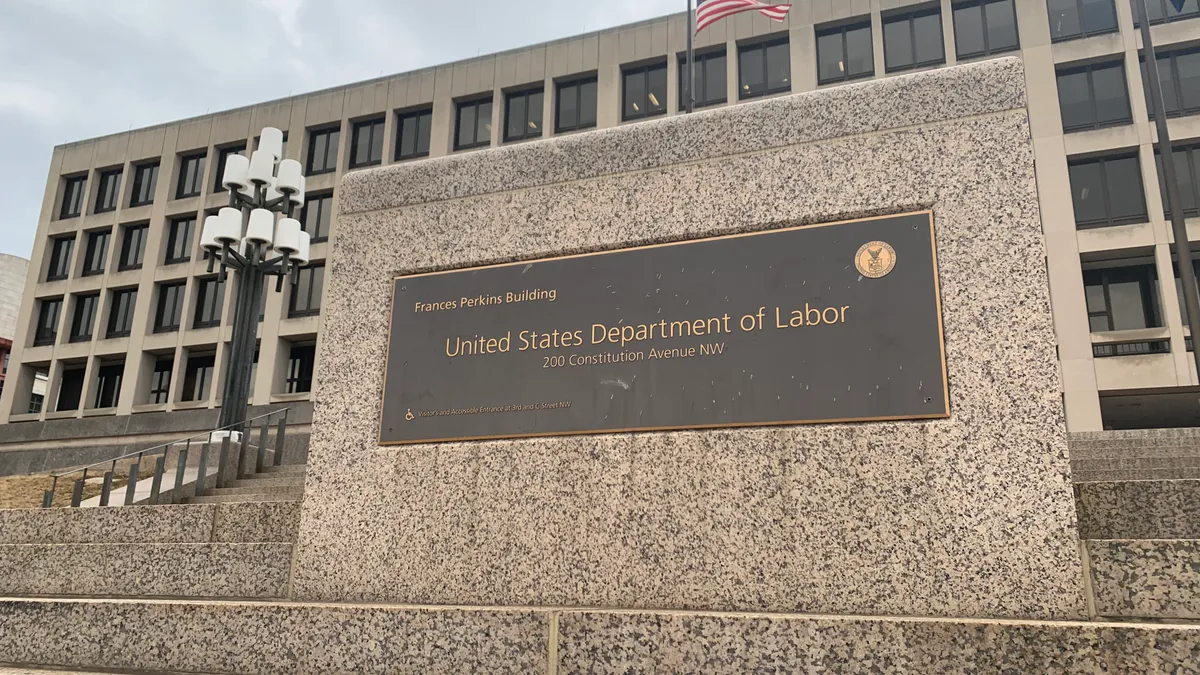Dive Brief:
- Challengers to the Department of Labor’s rule allowing pension fund managers to consider ESG factors will present their arguments before Texas’ Northern District Court, the U.S. Fifth Circuit of Appeals ruled Thursday. The rule is being contested by 26 Republican state attorneys general, a Liberty Energy subsidiary and an energy trade group.
- The three-judge panel decided not to weigh in on the legal merits of the case at this point, sending it back to a lower court for a narrow ruling on whether the rule “can be squared” with the Employment Retirement Income Security Act of 1974 or the Administrative Procedure Act.
- The lawsuit was originally dismissed in September with an opinion that relied on the now-overturned Chevron doctrine. The Appeals Court said in its July 18 decision its appellate panel of Judge Don Willett, Catharina Haynes and Andrew Oldham will keep the case on their docket while it seeks the District Court’s interpretation of whether the rule aligns with ERISA or the APA.
Dive Insight:
The Department of Labor rule in question, “Prudence and Loyalty in Selecting Plan Investments and Exercising Shareholder Rights,” was finalized in 2022 and has been in effect since January 2023. The rule overturned guidance from the Trump Administration in 2020 that forbade fiduciaries from utilizing “non-pecuniary” factors in investment decisions. In issuing the updated rule — which contained an update to the tiebreaker standard — the Labor Department said it was looking to undo a “chilling effect” that had been created by the 2020 rule.
The updated tiebreaker standard allows fiduciaries who have determined that two or more investments equally serve the financial interests of the plan and that it would be imprudent to invest in both or all options, to utilize collateral benefits like ESG factors to make the decision. U.S. District Court Judge Matthew Kacsmaryk initially dismissed the complaint, giving the agency deference under the Chevron doctrine and prompting the appeal.
The U.S. Supreme Court’s ruling in Loper Bright Enterprises v. Raimondo last month overturned that judicial philosophy of deferring to agencies’ interpretations of ambiguous statutes in laws. The Labor Department did not rely on Chevron in its appeal response and oral arguments, and Willett recognized in the order that the ruling did not bear much weight on either party’s arguments before the court this month.
“Given the upended legal landscape, and our status as a court of review, not first view, we vacate and remand so that the District Court can reassess the merits,” Willett wrote.
While both parties said they would be open to having the case sent back to the lower court, Willett noted neither suggested the Appeals Court stick to its normal practice when intervening Supreme Court precedent affects a case — vacate the prior judgment and remand it for reconsideration. Willett said in the order that “each [party] maintained that they had the best reading of ERISA … and each continued to press their respective positions during oral argument.”
While Willett conceded that, “there is also something to be said of the judicial economy and efficiency lost by not forging ahead and providing the parties the swift resolution they seek.” He added that “efficiency and economy … have never been pursued at all costs, at least in our legal system.”
Willett said the prior arguments before the lower court “have thus far significantly aided the appellate decision-making process,” and sustaining the same panel will give the parties “the benefit of a panel already acquainted with the briefs and arguments of counsel.”
“This disposition, we believe, strikes the right balance between the competing demands on the parties’ time and the court’s interest in the correct pronouncement of law,” Willett wrote.











